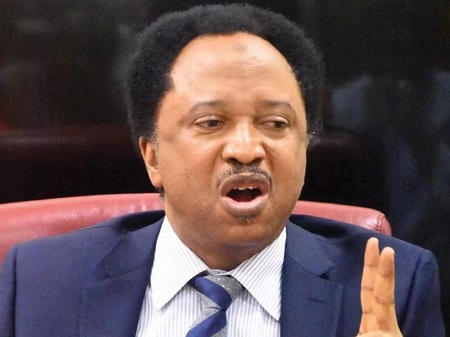Prepare to be absolutely stunned, because a prominent voice in Nigeria, former federal lawmaker Shehu Sani, has just made a truly shocking and incredibly bold demand! He’s calling for an immediate end to a deeply disturbing traditional practice: the eating of a dead king’s heart during royal successions!
Can you feel that sense of outrage and urgency? This isn’t just a casual comment; it’s a powerful condemnation of what he views as a “barbaric” ritual, and it’s bound to spark a massive debate about culture, tradition, and modernity in Nigeria.
The Unveiling of a Dark Practice: Royal Successions and Fetish Rites
It’s a chilling reality that in some parts of the country, deeply fetish practices reportedly come alive during royal successions, particularly when a traditional ruler dies. The most disturbing of these, as highlighted by Shehu Sani, involves the successor to the late king being made to eat the heart of his predecessor before the burial. Just let that sink in for a moment. It’s a ritual that sounds like something out of a horror movie, not a modern society.
Shehu Sani, known for his outspoken nature and progressive views, took to his platform on X (formerly Twitter) on Wednesday to express his disgust and, surprisingly, a glimmer of delight. “I’m delighted to see that many traditional institutions in this country are dropping the fetish practices associated with royal succession when their Kings or Chiefs die,” he wrote. This suggests that while the practice still exists, there’s a positive trend towards its abandonment in some areas.
But he didn’t shy away from calling out the specific horror: “There is a community in the central part of this country where the new monarch has to ‘eat the Heart’ of the late Monarch before ascending the throne.” He then issued his direct challenge: “I hope they have stopped. We must separate our culture from barbarity.” Wow! That’s a powerful statement, drawing a clear line between cultural heritage and practices that he deems unacceptable in the 21st century.
A Modern Shift: Islamic Rites vs. Traditional Cults
Sani’s comments come amidst a broader conversation about how traditional rulers are buried, and a recent example further underscores the shift he’s advocating for. He recalled that the Oluwo of Iwo, Oba Abdulrosheed Akanbi, publicly expressed his satisfaction with how the late Awujale of Ijebuland, Oba Sikiru Kayode Adetona, was buried.
Why was this significant? Because the Awujale, a revered monarch who died on Sunday at the age of 91, was buried the very next day at his residence in Ijebu Ode, in accordance with Islamic rites. And here’s the crucial detail: the interment process was carried out solely by Muslim clerics. Even more tellingly, security operatives, including soldiers, barred traditionalists and members of the Osugbo cult from handling the burial.
This incident in Ijebuland is a clear example of a modern, religious approach to burial rites taking precedence over traditional, often secretive, practices. It suggests a deliberate effort to move away from rituals that might be seen as archaic or even barbaric, in favor of more widely accepted religious customs. The intervention of security forces to prevent traditionalists and cult members from taking over the burial is a strong indication of a societal shift and a government’s willingness to enforce certain norms.
The Call for Cultural Evolution: Separating Culture from Barbarity
Shehu Sani’s demand is a powerful call for cultural evolution. He’s not advocating for the abandonment of all tradition, but for a critical examination of practices that might no longer align with modern human rights, dignity, or even common decency. The phrase “We must separate our culture from barbarity” is a rallying cry for progressive change within traditional institutions.
This issue is complex, touching upon deeply rooted beliefs, power dynamics within traditional leadership, and the ongoing tension between ancient customs and contemporary values. However, Sani’s bold stance brings this uncomfortable truth into the public discourse, forcing a conversation that is long overdue. It challenges communities to reflect on their practices and consider what truly honors their heritage while upholding universal human dignity. His voice, once again, serves as a catalyst for critical thinking and necessary change in Nigeria.


